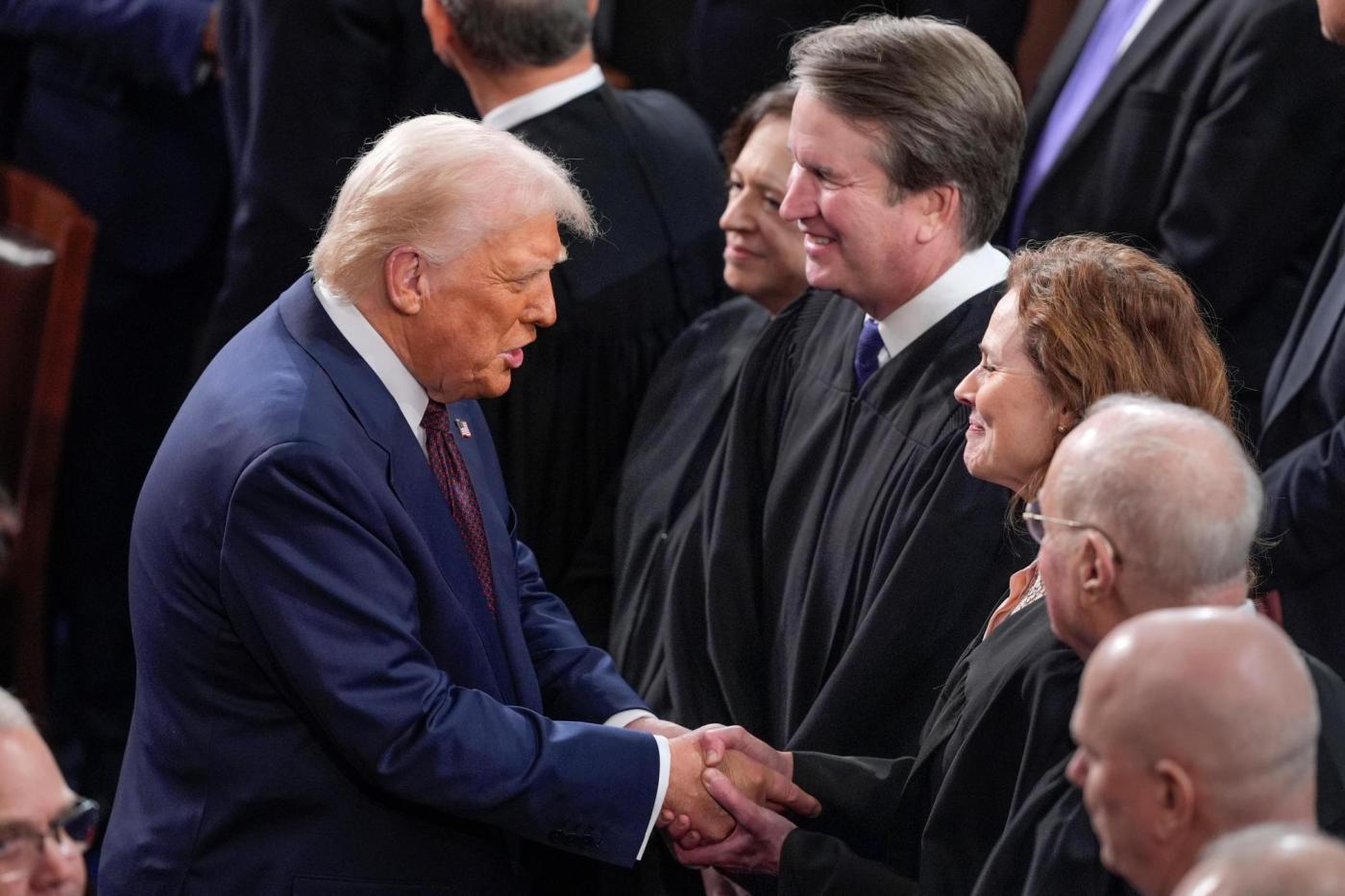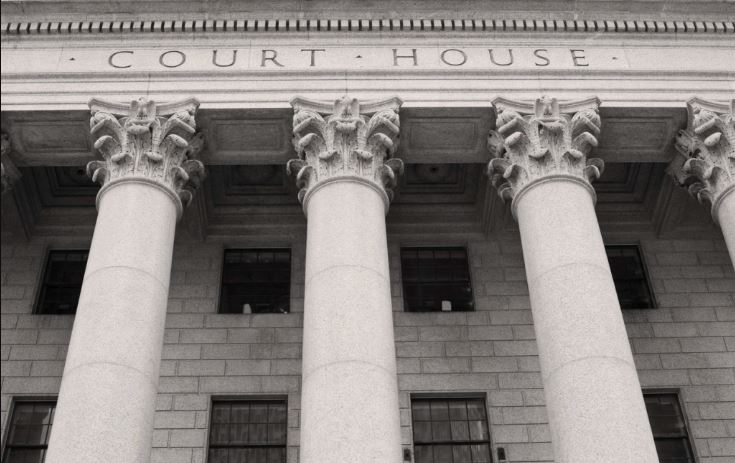The Supreme Court and President Donald Trump’s administration are mounting parallel crusades to virtually eliminate the use of race in government decision-making.
With one conspicuous exception.
Between them, the court’s Republican-appointed majority and the Trump administration have severely limited, and in some cases outright banned, the consideration of race to remedy prior discrimination or to promote greater racial and ethnic diversity in virtually any setting, including college admissions, public and private sector employment, and government contracting.
Related Articles
Trump’s economic promises to Black voters fall short after a modest shift in support for him in 2024
Mississippi police await autopsy results for Black student found hanged at Delta State
A Black student was found hanging from a tree. Police say there’s no sign of foul play
A confrontation between Rohnert Park neighbors went viral. Here’s what led up to it
Marin County faces discrimination suit by houseboat developer
‘Split-level paradigm’
But simultaneously, the Trump administration has declared that race is a legitimate factor for federal immigration officials to consider when deciding who to target. And in a landmark emergency docket ruling earlier this month, the six GOP-appointed justices, over the fierce dissent of their Democratic-appointed colleagues, agreed.
That contrast illuminates how the Trump administration and the Supreme Court majority are building a split-level legal paradigm when it comes to race – one that future generations will find difficult to dislodge, even as White people become a minority of the population.
“It seems clear that this [John] Roberts Court’s belief is that … race is a sword that can be used against racial minorities, but it can never be a shield to protect them,” said Aderson Francois, a Georgetown Law School professor who specializes in civil rights.
Democratic Senator Cory Booker of New Jersey anticipated this dynamic during his intense questioning of Supreme Court Justice Brett Kavanaugh during his 2018 confirmation hearings. Booker noted how Kavanaugh, in his writings and rulings, had opposed affirmative action programs, particularly in higher education, but had supported racial targeting in counter-terrorism efforts and policing.
Booker bound those threads into a provocative — and it appears prescient — prediction about how Kavanaugh would approach race-related issues on the Court. “The way I see it,” Booker told Kavanaugh, “you’re willing to consider using racial profiling [in law enforcement] but you’re hostile to the use of race when it is used to promote diversity and remediate past proven discrimination.”
Kavanaugh responded by stressing his personal commitment to racial equity (he noted that his mother taught at two mostly Black high schools) and at several points agreed that “the long march for racial equality is not over.” But he and the other GOP-appointed justices fulfilled one part of Booker’s prediction with their 2023 decision eliminating the use of race in college admissions. Roberts, writing for the majority, insisted that a student “must be treated based on his or her experiences as an individual — not on the basis of race” and passionately warned against “a judiciary that picks winners and losers based on the color of their skin.”
No explanation offered
Now the GOP-appointed justices have upheld the other half of Booker’s prediction with their ICE ruling, which reached the opposite conclusion about relying on race in government actions. The majority, as is typical in emergency or shadow docket decisions, provided no explanation for its order overturning a district court ruling that had blocked ICE’s immigration dragnets in Los Angeles as racially discriminatory.
But Kavanaugh filed a concurrence that argued the Trump administration was justified in directing immigration agents to consider race (along with English proficiency, employment in low-wage work and the immigrant presence in the surrounding community) when determining who to stop in their raids. “To be clear, apparent ethnicity alone cannot furnish reasonable suspicion; under this Court’s case law regarding immigration stops, however, it can be a ‘relevant factor’ when considered along with other salient factors,” Kavanaugh wrote.
Those words, Francois said, collide so directly with Roberts’ declarations in earlier cases involving race that “I just don’t see how that can be squared.” The ICE ruling is also difficult to square with “clear Supreme Court precedent” barring “the pernicious use” of racial stereotypes “in the criminal legal system,” said Jin Hee Lee, director of strategic initiatives at the Legal Defense Fund, a leading civil rights group.
Though the recent ruling applied to immigration, some civil rights advocates fear the Court may be signaling receptivity to greater racial profiling in criminal enforcement, too. It’s hardly a vast leap to extend the logic of Kavanaugh’s argument — that catching undocumented immigrants is so imperative that it justifies subjecting some US citizens to inappropriate stops — to crime and policing.
The rulings by the Supreme Court majority are just one front in a much broader conservative effort to redefine the acceptable uses of race. The Trump administration is waging an all-out assault on diversity programs in hiring and academic admissions even as it pursues immigration enforcement and criminal justice policies that disproportionately burden minority neighborhoods and deploys the National Guard into multiple cities with large non-White populations. Red states are pursuing like-minded initiatives to ban diversity programs and censor the discussion of race-related issues in public schools and universities. With encouragement from the Trump administration, the Court majority looks poised, in its session starting next month, to raze the last remaining section of the Voting Rights Act designed to protect the ability of minority voters to elect representatives of their own race.
It’s surely no coincidence that these efforts are accelerating as kids of color have become the majority of America’s youth population. Both the share and the absolute number of White kids are declining. (Since 2000, the nation has added over 9 million kids of color while the total number of Whites under 18 has declined by nearly that much, and fallen in 47 of the 50 states, according to demographer William Frey.)
Eventually, non-White people will become most of the nation’s workers, taxpayers and voters — as soon as the mid-2040s. They are likely to chafe against legal rules that leave them overrepresented in the criminal justice system, underrepresented in elite academic institutions and high-earning jobs, and limited in their political influence. By entrenching inequality today, Trump and his allies may be ensuring social unrest tomorrow.
Ronald Brownstein is a Bloomberg Opinion columnist covering politics and policy. ©2025 Bloomberg. Distributed by Tribune Content Agency.





